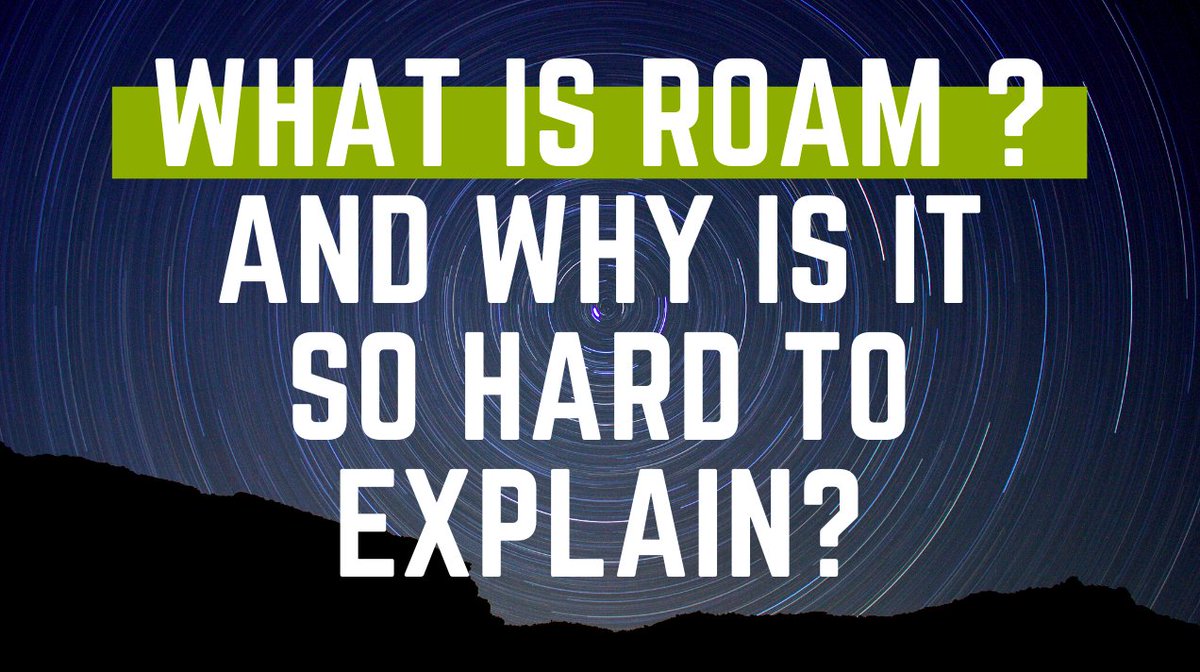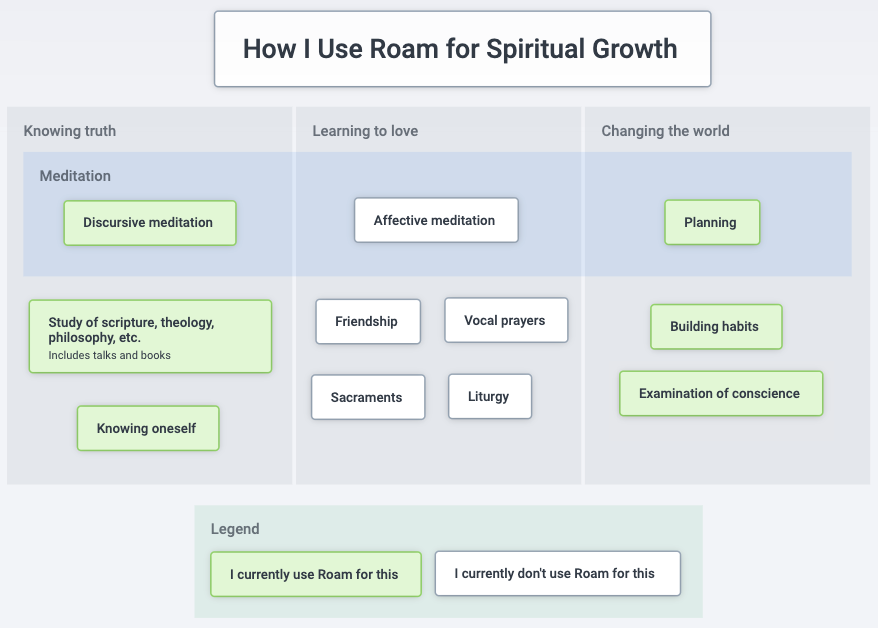
1/24 I THINK I FOUND THE PERSONALITY MODEL FOR PRODUCTIVITY STACK DESIGN
I. The 4 Tendencies, enhanced: who does your Stallion listen to?
II. Tactics based on this
III. Discipline, non-coercion and authentic self from this POV
IV. Appendices
Zoom in: plectica.com/maps/JSMJR538B…
I. The 4 Tendencies, enhanced: who does your Stallion listen to?
II. Tactics based on this
III. Discipline, non-coercion and authentic self from this POV
IV. Appendices
Zoom in: plectica.com/maps/JSMJR538B…

2/ What's the relationship between personality and PKM? Last Aug, we tried to answer this through a #roamcult meetup called Fabricating Serendipity, later rebranded as roam.cafe. We were not able to find the answer. Here's the post-mortem:
roamresearch.com/#/app/fabricat…
roamresearch.com/#/app/fabricat…
3/ I tried an easier question. There are only a few personality models. Which of them is most useful for productivity, for helping select which PKM technique would most likely work for you? What is the best model for classifying our Stallions?
https://twitter.com/Roamfu/status/1278321043623555072
4/ OCEAN, MBTI, self-authoring and Strengthsfinder have been helpful for understanding my Stallion, but found them too complex a prism to view PKM though. Same with DISC, Kolbe A, Enneagram (h/t @chiaracokieng @elaptics @michaelurmeneta @surrjon)
5/ I recently read @gretchenrubin's The Four Tendencies, and her model seems to be the one most useful one for productivity. It classifies personality types on 2 axes:
Do you embrace or rebel against EXTERNAL expectations?
Do you embrace or rebel against INTERNAL expectations?
Do you embrace or rebel against EXTERNAL expectations?
Do you embrace or rebel against INTERNAL expectations?

6/ @gretchenrubin is an Upholder, someone who embraces internal and external expectations. This bias may have blinded her to something familiar to those who listen only to inner expectations (Questioners) and those who fight all expectations, including inner ones (Rebels).
7/ Those who deal a lot with inner expectations have a more nuanced view of the self. We are dealing with at least 3 selves: the past self, the present self & the future self.
The Rebel tendency makes more sense with this nuance. Rebels tend to only listen to the present self.
The Rebel tendency makes more sense with this nuance. Rebels tend to only listen to the present self.
8/ Here's the method I'm proposing. In designing your PKM stack, first ask yourself, "who does my Stallion listen to?" and answer by ranking the following:
- other people
- past self
- present self
- future self
Then just focus on designing the top influences on your Stallion.
- other people
- past self
- present self
- future self
Then just focus on designing the top influences on your Stallion.
9/ Other people's expectations have a huge influence on the Stallions of Obligers and Upholders. Some tactics that work for externally focused Stallions:
-meditating on how your work impacts people you love, family pics on desk
-hiring a coach
-masterminds
-cohort-based learning
-meditating on how your work impacts people you love, family pics on desk
-hiring a coach
-masterminds
-cohort-based learning
10/ If your Stallion listens most to your past self, GTD probably works for you. [[The Discipline]] probably works for you. Inboxes probably work for you. Your present self is happy to be guided by the plans, goals and to do lists created by your past self.
11/ If your Stallion is most attuned to your present self, you might see GTD as a form of slavery. You are a master procrastinator. One solution is to increase discipline (more on this below). The other is to listen to your Stallion and negotiate:
https://twitter.com/Roamfu/status/1278321077874196481
12/ If the future energizes your Stallion, envisioning it will propel you.
The envisioning processes I've tried and recommend are Future Authoring and @complicegoals's CGI.
I used to work facing a whiteboard with my projects listed. Now it is in Roam, pinned to the sidebar.
The envisioning processes I've tried and recommend are Future Authoring and @complicegoals's CGI.
I used to work facing a whiteboard with my projects listed. Now it is in Roam, pinned to the sidebar.
13/ Ranking who my Stallion is most attuned to has helped me understand people who have a different ordering.
Let me share with you first my ranking, so you see where I'm coming from:
1. Future self (most influential)
2. Present self
3. Past self
4. Other people
Let me share with you first my ranking, so you see where I'm coming from:
1. Future self (most influential)
2. Present self
3. Past self
4. Other people
14/ I work for the future, and I view discipline as a tool to get there. Yet I hate being constrained by expectations, including that of my past self.
What worked for me is daily meditation/journaling to find today's intersection of my Rider's vision & what my Stallion likes.
What worked for me is daily meditation/journaling to find today's intersection of my Rider's vision & what my Stallion likes.
15/ The wilder your Stallion, the more you will tend to agree w @jockowillink, that discipline = freedom.
When discipline is meaningless, it feels like coercion. But when I see its purpose, doing things I dislike is training my Stallion—habit building medium.com/life-tactics/m…
When discipline is meaningless, it feels like coercion. But when I see its purpose, doing things I dislike is training my Stallion—habit building medium.com/life-tactics/m…
16/ @gretchenrubin thinks it is a paradox that Rebels are attracted to regimented environments like the military or monasteries (Thomas Merton is her example), but it makes so much sense if you've seen the power, the terrible destructive power, of your untamed stallion. 

17/ My Stallion is attuned to the self. But my Rider wants to live for others. In my cosmic worldview, living for others is the path to purpose and happiness. My Rider must master my Stallion, or we will ride fast to hell.
18/ I imagine people with the opposite ranking might see discipline as coercion instead of freedom. If your Stallion is attuned to external expectations, discipline may only drown your inner life. Evangelists of non-coercion @AskYatharth @m_ashcroft @anthilemoon would you agree?
19/ I never understood the utility of the concept of "authentic self." Putting myself in the shoes of those who are attuned primarily to external expectations, I see how this concept might help in balancing the influence of other people with your inner expectations.
20/ PKM tools that feel natural to people with the opposite ranking could help give balance to your Stallion. Eg, as someone naturally attuned to my future and present self, I should meditate more on how my actions affect the people I love, not for productivity but for humanity.
21/ Appendix 1. You'd want to conserve discipline for when it's needed, which means your productivity system should require minimal willpower (@RoamResearch enables this like no other). This also means designing it based on your Stallion's character.
https://twitter.com/Conaw/status/1314410572100759552
22/ Appendix 2. It appears that personality is hardcoded in our brains. Check out this book on the neuroscience of emotion, and techniques to nudge ones emotional tendencies:
https://twitter.com/Roamfu/status/1278321060572790785
23/ Appendix 3. Personality is essentially your collection of emotional defaults. Your worldview will affect how you view emotions.
https://twitter.com/kcorazo/status/1331787603226476547
24/24 I'd love to hear from you. What is your ranking? Does this model align with your experience? What would you add to this concept map? I've only lived one life, so I'm clueless to some of these (eg, if others are #1 to you, how do you balance that with knowing what you want?) 

P.S. I'm transmuting these blocks into a book: stallionproductivity.com
• • •
Missing some Tweet in this thread? You can try to
force a refresh








